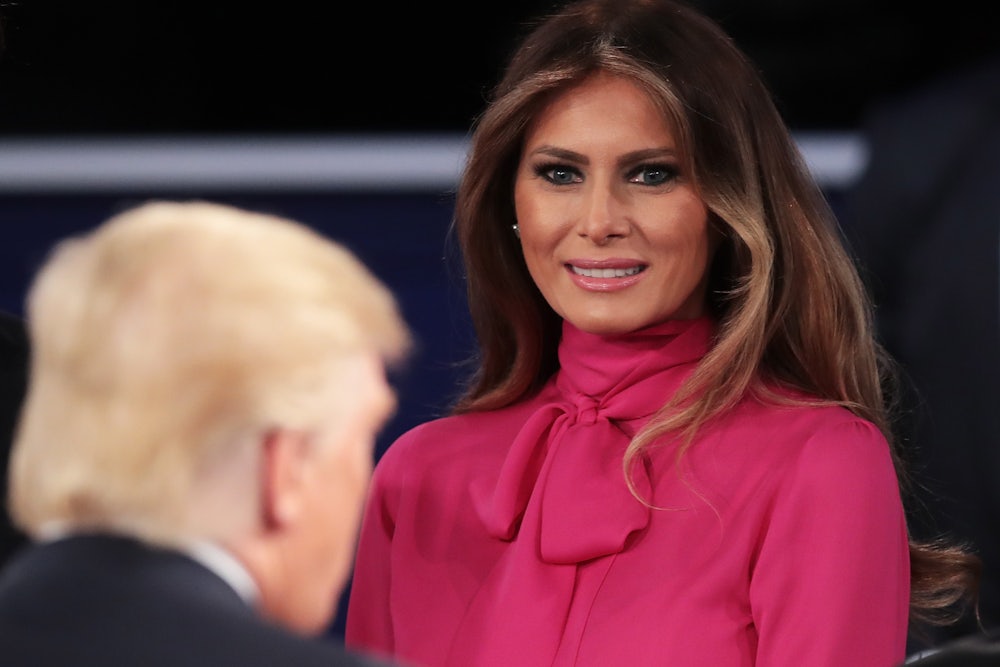Speaking to Anderson Cooper, Trump used a familiar but disturbing argument to defend the fact that her husband has boasted about assaulting women: He’s just a big child. As she explained, “They were kind of a boy talk, and he was led on, like egged on, from the host to say dirty and bad stuff.” Throughout the interview, she kept reframing Trump’s words as just “boy talk,” which led to a memorable exchange:
Cooper: He described it as locker room talk, to you, you’ve sort of alluded to that, is that what it is to you as well? Just locker room talk?
Trump: Yeah, it’s kind of two teenage boys, actually they should behave better, right?
Cooper: He was 59.
Trump: Correct. And sometimes I said I have two boys at home, I have my young son and my husband, so, but I know how some men talk, and that’s how I saw it, yes.
The “boys will be boys” defense constitutes a particular type of sexism, one that has a maternalist flavor. By casting her husband as the “boy” she has has to look after, Melania Trump empowers herself on some level—she’s the adult in the room. But it comes at the expense of giving her husband a wider license, which extends to mistreating women in general. What’s good for Melania Trump on a personal level isn’t necessarily good for her gender—and indeed in this case they are in direct opposition.
